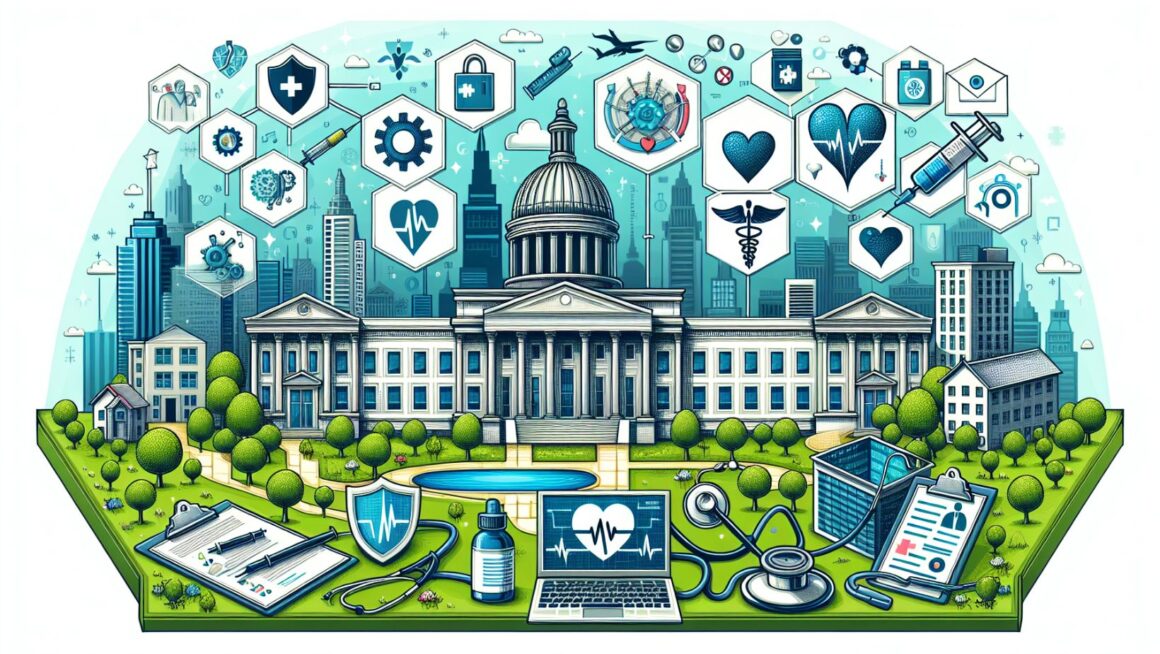The role of the US government in health care is multifaceted and essential. Government involvement touches many aspects of health care, from funding medical research to providing insurance for millions. Understanding this role can help you navigate and appreciate the support systems available.
The US government plays a critical role in the health care system, providing support through various programs and policies. This support is vital for ensuring that all citizens have access to essential health services. This article will explore how the government supports health care and why it matters to you.
Funding and policy initiatives
One of the primary ways the US government supports health care is through funding and policy initiatives. The federal budget allocates significant resources to agencies like the National Institutes of Health (NIH) and the Centers for Disease Control and Prevention (CDC). These funds are used for research, disease prevention and public health programs that benefit millions of Americans.
Moreover, the government implements policies aimed at improving health care accessibility and quality. For instance, medical assistance programs ensure that vulnerable populations receive necessary care. These policies often focus on reducing disparities in health outcomes among different demographic groups.

The government also supports health care innovation through grants and incentives for medical technology development. These initiatives encourage the creation of new treatments, diagnostic tools and healthcare delivery systems. By fostering innovation, the government helps drive advancements in medical science that can lead to improved patient outcomes and more efficient healthcare practices. This support extends to areas such as telemedicine and electronic health records, which are transforming how healthcare is delivered and managed across the country.
Additionally, the government supports health care education and workforce development. Through programs like the National Health Service Corps, the government offers scholarships and loan repayment options to healthcare professionals who commit to working in underserved areas. This initiative helps address the shortage of healthcare providers in rural and low-income communities, ensuring more equitable access to medical care across the country. By investing in the healthcare workforce, the government strengthens the foundation of the entire healthcare system, improving patient care and outcomes nationwide.
Insurance programs and coverage
Government-sponsored insurance programs play a crucial role in providing coverage to those who might not otherwise afford it. Medicare, Medicaid and the Children’s Health Insurance Program (CHIP) are some of the most well-known examples. These programs offer a safety net for seniors, low-income families and children, ensuring they receive essential medical services.
In addition to these programs, the Affordable Care Act (ACA) has expanded coverage options for many Americans. The ACA includes provisions that prevent insurers from denying coverage based on pre-existing conditions, making it easier for people to obtain necessary treatments. These measures demonstrate the government’s commitment to ensuring broader access to health care services.
Public health initiatives
The government also supports health care through various public health initiatives aimed at promoting wellness and preventing disease. Programs such as vaccination campaigns, smoking cessation efforts and nutritional guidelines aim to improve public health outcomes on a large scale.

These initiatives often involve partnerships between federal, state and local governments to address specific health challenges within communities. By investing in preventive measures, the government helps reduce the burden of chronic diseases and improves overall public health.
The importance of understanding government support
Understanding the role of the US government in supporting health care is crucial for several reasons. First, it helps you appreciate the resources available to you and how they can be accessed. Knowing about programs like Medicare or Medicaid can make a significant difference in managing your health care needs.
Additionally, being informed about government policies allows you to advocate for improvements effectively. Whether it’s through voting or participating in community discussions, your voice can influence future policies that impact health care access and quality.
Lastly, awareness of government support fosters a sense of community responsibility. By understanding how public funds are allocated and used for health care, you can better appreciate the collective effort required to maintain a robust health system that benefits everyone.



